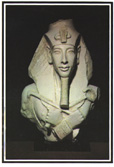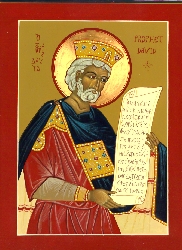Cosmic Order and the Shape of the World – Competing Views



Traditional Egyptian – Ma'at
Akhenaten's new monotheism acted as a challenge to traditional Egyptian polytheistic religion. In essence, he took the traditional notion of ma'at and applied it to his new faith. Ma'at means four different interrelated things in Egyptian:
- The natural and cosmic order; the power which both the human and animal worlds abide by
- A static reality essentially unchanging. Ma’at is stable and, thus, can be predictably lived by.
- The order of wisdom and practical living. Ma’at is present in the world and must be discerned by day-to-day lessons.
- The justice of the pharaoh, who is considered the source of authority. Because the pharaoh lives by ma’at, there is no true distinction between religious and politico-economic realms.
Such a concept suggests that ma'at radically conflated the political, practical, and cosmic orders of society into a single system ruled over by the pharaoh. Significantly, the pharaoh was often called "A god in whose dwellings one lives."
How Akhenaten's poem compares to the Psalmist's
While Akhenaten may have changed certain matters, his religion still acted to place the pharaoh at the center of all things Egyptian.
The Hymn to the Sun
-
A creation hymn that attributes the order and bounty in the world to a single deity, Aten.
Reread stanzas one through ten; note how they each praise something additional about Aten's power over the created order.
-
A recognition that the pharaoh is the conduit and representative of Aten upon the earth.
Look at stanzas ten through twelve; What relationship does Akhenaten see between himself and Aten?
- As monotheism, a radical (and short-lived) challenge to the normal Egyptian polytheism.
Psalm 104
- A biblical creation hymn that attributes the order and bounty of the earth to Yahweh.
- A recognition that the wisdom and righteousness in creation come from God.
- cf. Proverbs 8 – Wisdom is God’s handmaid who helps order and create the world. The person who lives by wisdom is blessed.
I mention Proverbs chapter eight, because scripture attributes to Wisdom many of the same attributes that the Egyptians attributed to Ma'at and the Greeks attributed to Logos.
Psalm 19
- A recognition that the natural creation speaks of God by its beauty and order (verses 1-6).
- An awareness that the law of Yahweh, the Torah, brings the blessing that the natural creation exhibits. (verses 7-14)
- The Torah is more specific. Wisdom teaches an order in the universe that one must discern, specifically by learning which behaviors bring blessing and cursing. Torah is more personal because the revealed direction of God is a unique covenant between God and his chosen people.
John 1
- The Greek concept of Logos is that of an impersonal rational order (the Logos) that directs and controls the universe.
- John applies this concept to Christ, but Christ is a personal Logos who created and ordered the world.
- Christ came, the incarnate Son of God to reveal personally who God is. He is both the Wisdom of God and the Torah of God. Christ sums up all that ma'at, logos, and wisdom claim to represent.
